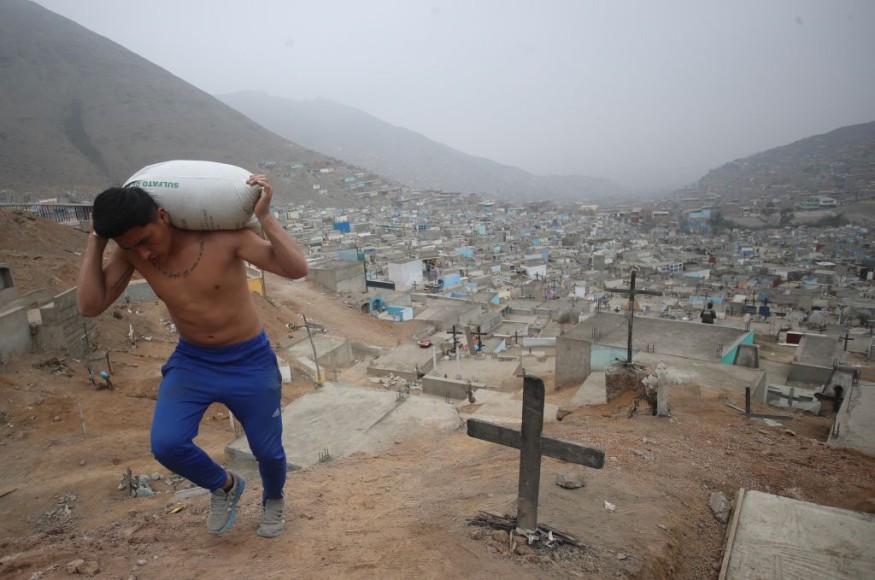Peru Struggles With Lack of Cemetery Space as COVID-19 Deaths Mount

A broadcasted live excavation in a poor Peruvian neighborhood in the capital city of Lima attracts the attention of authorities in Peru, prompting officials to offer the family space on the rocky slopes of a cemetery.
After the death of Joel Bautista due to a heart attack last month in the country, his family tried to look for a grave at four different cemeteries. However, they were unsuccessful, and four days later, they resorted to digging a hole in their own garden.
According to Voice of America, the sister of the deceased, Yeni Bautista, said during an interview that if there is no solution, there is a space in their own garden.
She further noted that their family decided to dig at the foot of a tropical hibiscus tree after the body of her brother started to decompose.
The plight is nothing new in the country, as other families also experienced the same difficulty. After the government of Peru struggled in controlling the COVID-19 pandemic for more than a year, the country now faces a parallel crisis, which is a lack of cemetery space.
The problem affects the whole country, particularly the relatives of coronavirus victims. Some families in the country have already acted on their own, digging clandestine graves in areas surrounding some of the 65 cemeteries in Lima.
Peru Struggles to Find Space to Bury People
Based on the Health Ministry in the country, the desperate lack of options came after the country endured its deadliest period of the pandemic yet. More than 64,300 individuals who tested positive for coronavirus have died in Peru.
But for experts, the figure is most likely an undercount. Even a vital records agency estimates that the true figure is above 174,900. The counting includes those individuals possibly infected and were not confirmed by the test.
In April, an infected person died every four minutes, either in hospital beds or in their own home. Hospital space has been so scarce that Peruvians have read on social media regarding families offerings kidneys, cars, or land in exchange for one of the country's 2,785 intensive care beds, MSF reported.
Despite cemetery space found, still, burials pose a huge financial burden, especially for families who have fallen into poverty due to the coronavirus pandemic.
The cost of a burial in a cemetery on the edge of Lima is close to $1,200. It is almost five times compared to the monthly wage in the country, which is only at $244.
Meanwhile, retired merchant Victor Coba took matters into his own hands. He built graves for himself, his wife, and four other relatives in a narrow space in a cemetery at the foot of a treeless hill in the northern portion of the capital city.
The 72-year-old retired merchant carried bricks, cement, and sand to the site, where he started constructing his eternal home with help from his friend.
Coba and his wife decided to act after watching the news and learning that two dozen of his neighbors died due to the coronavirus, Associated Press reported.
WATCH: Peru's COVID Crisis: 'Almost All Peruvians Know Someone Who Died' - From Al Jazeera English
Subscribe to Latin Post!
Sign up for our free newsletter for the Latest coverage!
© 2026 Latin Post. All rights reserved. Do not reproduce without permission.














